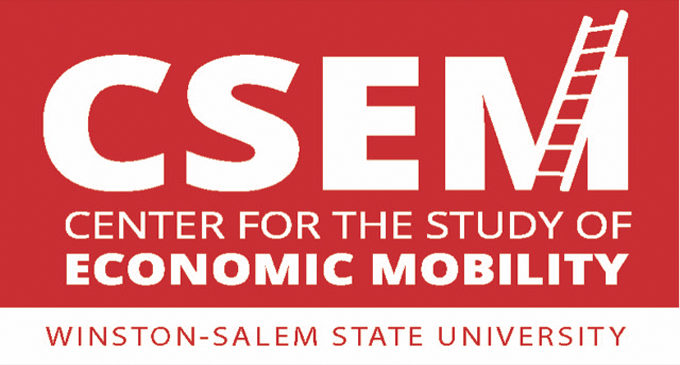‘The struggles are real’ for released offenders – and so are chances for success

By John Railey
“The struggles are real,” an audience member at a recent statewide conference on reentry said of the challenges that released offenders and those who work with them face. Several members of the audience nodded in agreement at the Greensboro conference titled “Building a Clear Vision for Reentry in North Carolina.”
There are setbacks, but there are gains as well, participants said. “We see the value in their lives,” one participant said. A strong support network is crucial. In Forsyth County, that network includes Project Reentry, and community engagement and research by Winston-Salem State University’s Center for the Study of Economic Mobility (CSEM). Reentry work is a bedrock for CSEM, which realizes the heavy financial and human costs of recidivism.
Among CSEM’s partner organizations are the Do School, whose participants can include released offenders learning the construction trade. As Do School Founder and Executive Director Jerry Anderson has said, participants can leave behind “the wreckage of the past and gain upward mobility by being in the workforce.”
CSEM research eases the path as well. Douglas Bates, an assistant professor in WSSU’s Department of Social Work, is researching how time spent in prison impacts economic mobility for released offenders in Forsyth County. Of 22 responses to a survey he sent out that measures the effects of spending time in prison:
*36.4% appreciate structure and authority.
*77% of respondents said they had anxiety and/or depression.
*31.8% “somewhat agree” that “the powerful dominate the weak.”
Bates hopes to further develop the survey so that employers can use to it create conducive work environments for released offenders. Many employers are hesitant to hire those with criminal records. Yet released offenders can make good employees, Bates has said, and become reliable workers because they know how hard it is for their population to find work. “I think this could be beneficial for all parties involved,” Bates said.
Employers must recognize factors at work in the personalities of released offenders, Bates indicated. For example, given that released offenders appreciate structure and authority, employers could make sure that is in place for positions for released offenders. “When they’re in prison, they have that structure,” Bates said. “Employers can make sure they provide lots of structure.”
Employers could also be aware that released offenders might have anxiety and/or depression, and be prepared to refer them to proper treatment.
(In new research, Bates and CSEM Research Manager Zach Blizard, using estimates of a structural equation model of incarceration rates, find that variables associated with elementary school quality, specifically test scores and student-teacher ratios, directly and indirectly affect local rates of incarceration.)
Participants at the Greensboro conference said released offenders need wide-ranging support systems. Jennifer Aviles, who spoke at the conference, said family support, which she was fortunate enough to have, is especially important. After doing time in prison, she worked her way back into the free world, and is now an administrative coordinator. “I love what I do,” she said.
But it has been a long journey.
“For a little bit, I just gave up,” Aviles said. “Whatever I was doing, I was getting knocked down.”
Gradually, she found her way. “I did not allow my time to dictate who I was,” she said. “I allowed my time to dictate who I was going to be. I am not a number.”
She knew not to exhibit the hard-shell exterior that prison can encourage. “You can do a lot with vinegar,” she said. “You can do so much more with sugar.”
Through the help of a government program, she got a laptop and learned how to use it.
Aviles said her daughters taught her how to use her LG phone. She learned how to do research on her laptop – “I’m going to Google my life away,” she said – and now sometimes helps friends with tech issues.
And she counsels released offenders. “I’m not another person saying, ‘I’m here to save you.’ I’m a person saying, ‘You can make it.’ I need to let everybody know: ‘You can make it.’”
A wide array of individuals and organizations, including CSEM, are working to ease that path.
John Railey, raileyjb@gmail.com, is the writer-in-residence for CSEM, www.wssu.edu/csem.









